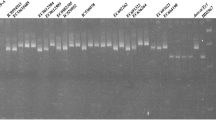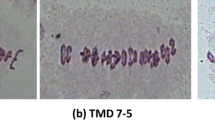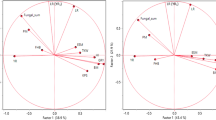Abstract
PROF. STAKMAN in the United States, by continual breeding of resistant strains of wheat and by application of effective spraying at the appropriate time, has been able to minimize loss by rust; but in spite of his devoted labours for more than three decades and the ample facilities given by the U.S. Government, he has not been able to eradicate the wheat-rust from the country.
This is a preview of subscription content, access via your institution
Access options
Subscribe to this journal
Receive 51 print issues and online access
$199.00 per year
only $3.90 per issue
Buy this article
- Purchase on Springer Link
- Instant access to full article PDF
Prices may be subject to local taxes which are calculated during checkout
Similar content being viewed by others
References
Schwarz-Kraepahn, Hanna, Naturforsch., 2 B, (11–12) (1947) (seen in Biol. Abstracts, 23 (1949)).
Oxley, T. A., Unpublished Report of the Pest Infestation Laboratory, Slough, Bucks, England (1948).
Whitehead, M. D., Thirumalachar, M. J., and Dickson, J. G., Phutopathol., 38 (1948).
Bose, S. R., Nature, 159, 512 (1947).
Author information
Authors and Affiliations
Rights and permissions
About this article
Cite this article
BOSE, S. Problem of Wheat-Rust. Nature 166, 352–353 (1950). https://doi.org/10.1038/166352b0
Issue Date:
DOI: https://doi.org/10.1038/166352b0
Comments
By submitting a comment you agree to abide by our Terms and Community Guidelines. If you find something abusive or that does not comply with our terms or guidelines please flag it as inappropriate.



